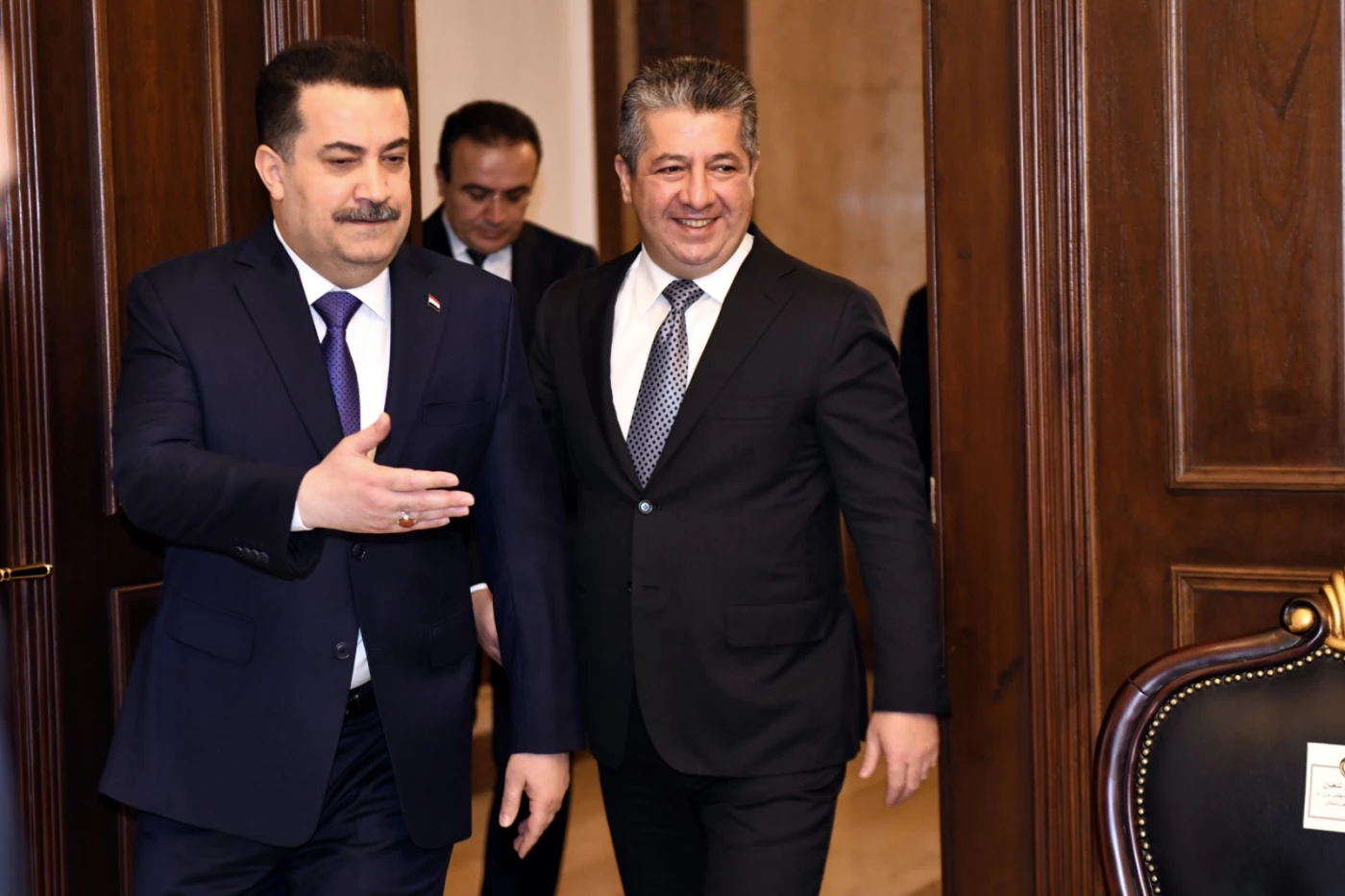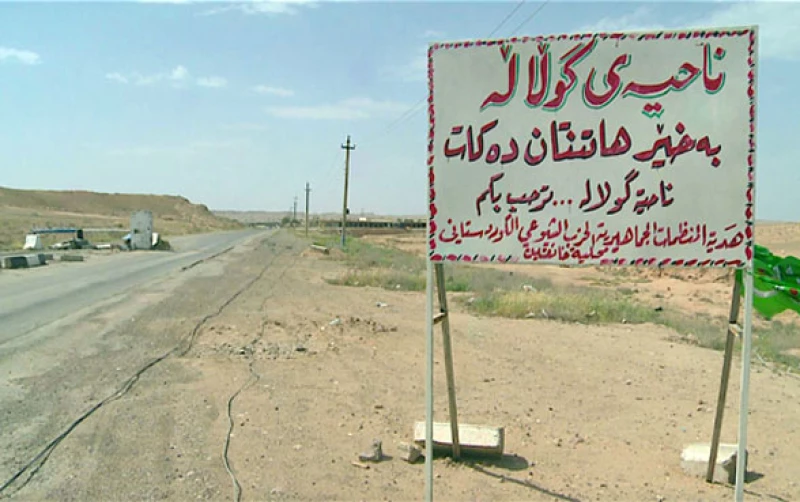ERBIL, Kurdistan Region of Iraq - Kurdistan Region PM Masrour Barzani on Saturday received a phone call from Iraqi Prime Minister Mohammed Shia’ al-Sudani, with both leaders describing the breakthrough resumption of Kurdish oil exports as an “important achievement.”
“The federal prime minister thanked the [Region’s] prime minister for reaching this important agreement, and the [Region’s] prime minister congratulated the federal prime minister for not allowing obstacles to prevent reaching the agreement,” said a statement from the Kurdistan Regional Government (KRG).
During the call, Barzani called on Sudani to ensure that the issue of salaries and financial entitlements of the Kurdistan Region’s civil servants “is fundamentally resolved so that the people of Kurdistan are no longer in uncertainty. He also said this year’s salaries must not be lost.”
Exports of crude oil from the Kurdistan Region through the Iraq-Turkey pipeline resumed on Saturday after a 30-month halt, following the signing of a breakthrough agreement between Erbil, Baghdad, and international oil companies operating in the Region.
Per the agreement, the Kurdistan Region will deliver “all crude oil” produced from its fields to Iraq’s State Oil Marketing Organization (SOMO) to be exported through the Iraq-Turkey pipeline, apart from quantities allocated for domestic use.
“Both leaders described the resumption of the Kurdistan Region’s oil exports as an important achievement that serves all Iraqis,” the statement added.
Earlier on Saturday, Barzani thanked the United States in particular for its role in restarting the exports.
The Kurdistan Region’s oil exports through Turkey’s Ceyhan port have been halted since March 2023, when a Paris-based arbitration court ruled that Ankara had breached a 1973 pipeline agreement by allowing Erbil to start selling oil independently in 2014, awarding the case to Baghdad.
Erbil and Baghdad had since announced several agreements to resume exports, but the process had been blocked due to international oil producers demanding payment surety, transparent implementation of Iraq’s budget law stipulations, and resolution of payments that are in arrears before resuming their work.
On Wednesday, oil firms party to the tripartite agreement said that “the agreed framework maintains the sanctity of existing contracts and provides surety of payment to the IOCs.”



 Facebook
Facebook
 LinkedIn
LinkedIn
 Telegram
Telegram
 X
X


